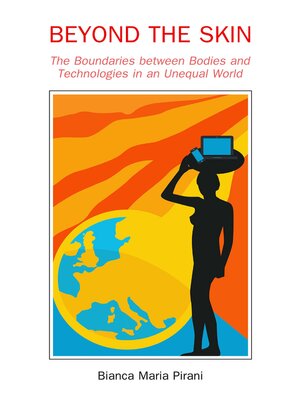Beyond the Skin
ebook ∣ The Boundaries between Bodies and Technologies in an Unequal World
By Bianca Maria Pirani

Sign up to save your library
With an OverDrive account, you can save your favorite libraries for at-a-glance information about availability. Find out more about OverDrive accounts.
Find this title in Libby, the library reading app by OverDrive.



Search for a digital library with this title
Title found at these libraries:
| Library Name | Distance |
|---|---|
| Loading... |
"We are our bodies", "we have our bodies", "we make our bodies". This "three-headed" axiom has made the body the "parasite" of modern culture.The individual that is fit for modernity was, and certainly still is, expected and encouraged to embrace its corporeal existence in order to find an answer to one of the most frequently asked questions in the modern Western world: "Who am I?" For those who live in Western societies, with a history of individualism, the temptation is to look inside oneself, to examine one's thoughts and feelings, as if self-identity is a treasure locked inside.The desire to change the skin one inhabits, to cite Almodòvar, has become "territorialized" in on-screen media, digital sites and social networks, shuffling the cards as if in an attempt to dance on the ruins of passing time. Everything is at play, everything is art. Madonna is like Michelangelo. Comic strips are like eight hundred page novels by Tolstoy. What is up for discussion is the advanced transformation of persons into spectators. The multiplication of screens creates a "visual party". The definition of the boundaries between the social sensorium and today's advanced technologies is the fundamental, and as yet unsolved, methodological problem arising from the contemporary "spatial turn" that is coming to maturity thanks to the re-orientation of the classical digital paradigm."Reclaiming the social throughout embodied practices" (Greenwood, 1994) is basically the ultimate objective of this book. The thinking, feeling and acting body will figure as prominently as the mind, cognition, and rationality in combining the framework of the research and the methodology underpinning its development. The body is, indeed, the origin of humans' most individual experiences and actions, since it is the point of application of the tuning and calibration of the senses and the general training of social skills. The notion of "body in action in context" is, consequently, the methodological proposal that Beyond the Skin: The Boundaries between Bodies and Technologies in an Unequal World offers to sociology, in order to surpass the "new alliance" between human senses and the new media, an alliance staged by bodies moving faster than thought across the maps of contemporary mobile spaces.







